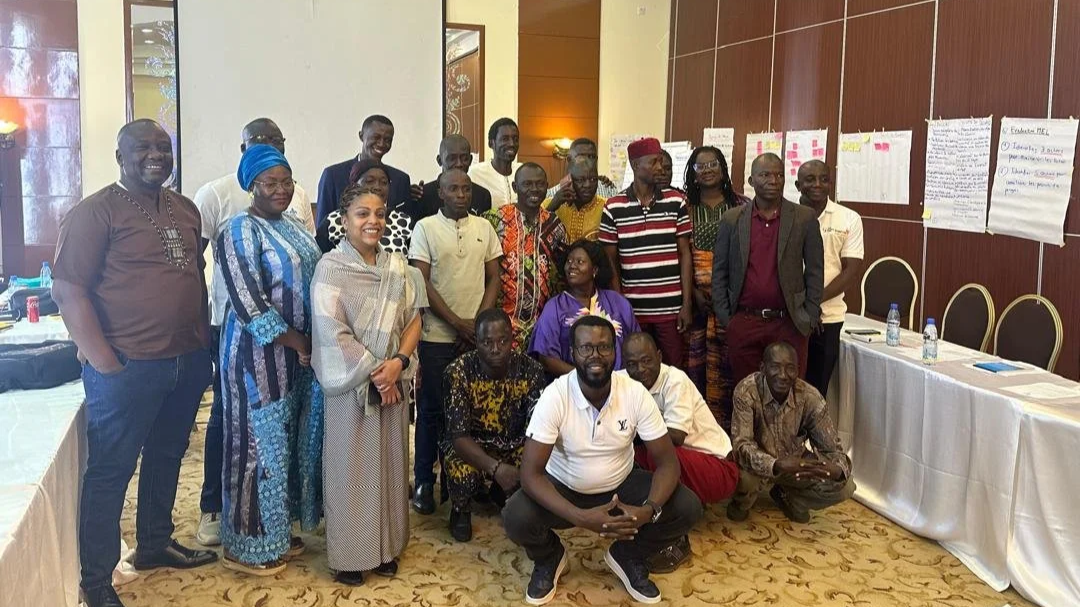How strong leadership powered a nationwide polio vaccination campaign in the Central African Republic
The Central African Republic (CAR) recently delivered polio vaccines to more than 2.6 million children across the country, surpassing its national target by over 300,000. Achieving this milestone required technical expertise, access to the right vaccines and resources, and careful coordination from CAR’s Expanded Programme on Immunisation (EPI) team. Amp Health partnered closely with the EPI team to ensure they had the tools, processes, and skills required to successfully carry out this nationwide campaign.
What made this campaign different?
With support from the Gates Foundation, Amp Health began partnering with CAR’s EPI team in 2024 to strengthen their leadership and management skills to improve vaccine supply and delivery systems nationwide.
Our approach is always tailored to the realities and priorities of each team. In CAR, our learning experts worked with our embedded Management Partner, Daniel Mugunga Matabaro, and the EPI team to co-design a practical, context-specific programme that built the EPI team’s ability to plan, coordinate, and lead effectively. These efforts proved central to the polio campaign’s success.
Four factors stood out:
Accountability mattered: Clearly defined roles and responsibilities enabled faster mobilisation and smoother coordination.
Data drove action: Weekly review meetings, a monitoring dashboard, and WhatsApp groups allowed real-time course corrections, particularly in low-coverage areas.
Better tools improved coordination: Activity trackers and structured partner alignment mechanisms strengthened planning and coordination with stakeholders such as WHO, Unicef, and Gavi, contributing to more effective delivery across all districts.
Reviews strengthened results: Post-campaign reviews highlighted systemic issues such as administrative delays, under-estimated targets, and data quality challenges, creating a cycle of continuous improvement.
“CAR’s polio victory is the fruit of strong leadership and strengthened systems. Organising regular meetings, improving coordination and collaboration with partners, and maintaining clear communication with district health officials and regional teams were critical to our success.
The use of a dashboard tool allowed us to track progress throughout the campaign. Together, these efforts enabled us not only to reach but to surpass our vaccination targets across all districts. ”
The EPI team with Amp Health’s Country Support Director, Rihlat Said Mohamed, and Management Partner, Daniel Mugunga Matabaro
Beyond polio: Building stronger systems
The EPI team’s new ways of working are already strengthening CAR’s broader immunisation system. Weekly meetings between central managers and regional focal points proved highly effective, helping to analyse coverage data and enable rapid problem-solving. As a result, the EPI team managed to reverse a steep decline in third-dose pentavalent vaccine coverage in the Carnot district after a 15% drop was detected in one of the weekly meetings. Thanks to the EPI team's quick action and response, they managed to increase coverage from 68% to 89% in six weeks. Better forecasting has also reduced vaccine stockouts by 40%, ensuring more reliable access for communities.
This progress was supported by complementary coaching: Daniel worked with the EPI team on collaboration and data use, while Brice Makon, Management Partner for the Country Leadership Program, guided district leaders on stakeholder coordination. Together, these efforts built leadership at multiple levels of the health system.
CAR’s polio campaign success demonstrates what is possible when dedicated public health teams are equipped with the right tools, coaching, and support. Amp Health’s embedded, experiential learning approach, combining tailored training with trust-based partnerships, helps teams not only deliver ambitious campaigns, but also build stronger, more resilient systems.
In a world where funding for global health is under pressure, this story offers hope: with strong leadership and collaborative systems, even resource-constrained health teams can achieve extraordinary results.


